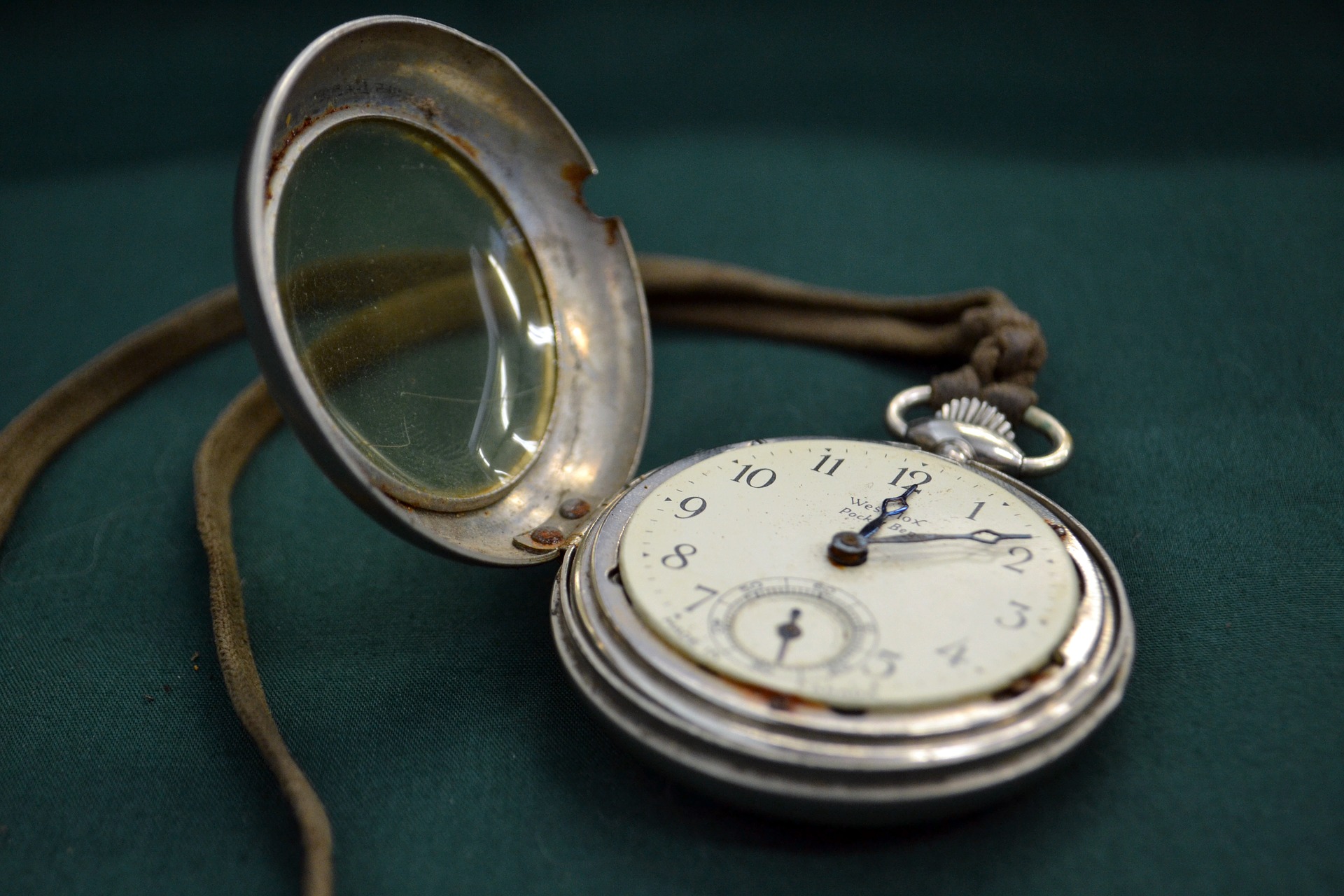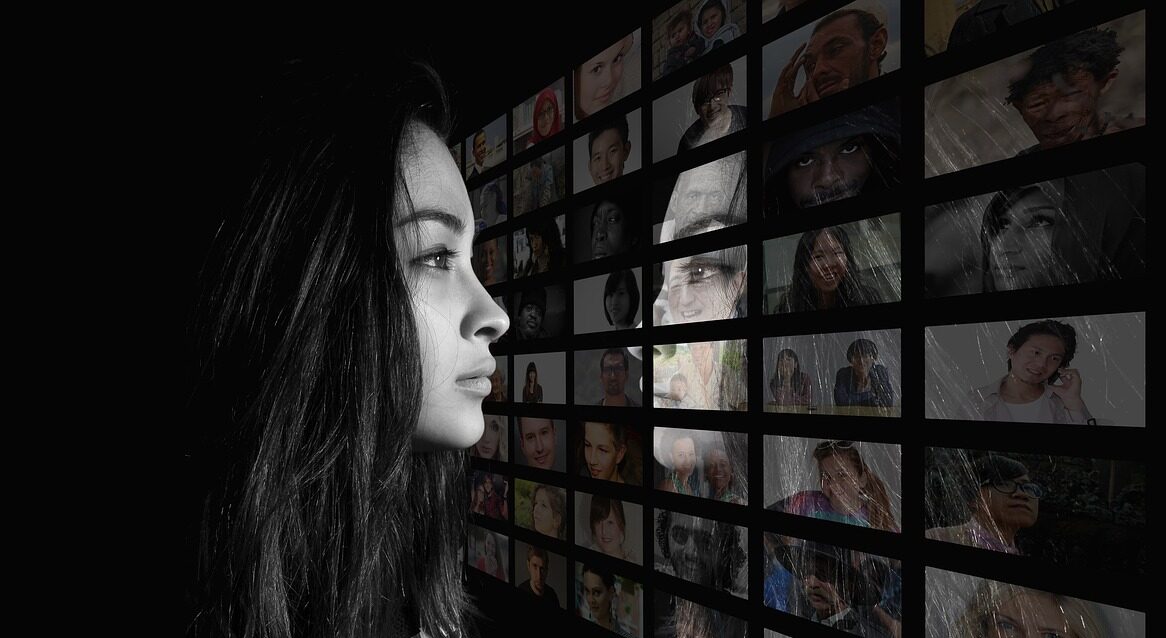personal Exploration
group participation

Personal Exploration (Analogy)
(From the ideas of John Vervaeke)
John walks through his summer days interacting with the world he sees through his sunglasses. He is so used to them, that he often finds them still shading his eyes even after the sun is no longer his enemy. When he lifts them to the top of his head, he takes in the vivid colors of the world he has been missing. The sun has nearly set, and he feels disappointed that he only gets to take in the full beauty for its last few moments.
He is also taken by the clarity of the world around him. The trees, the cars, the people – they all appear in such higher definition without the glasses. He slips the glasses back down over his eyes…blurry. Up – clear. Down – blurry. And for the first time that day, John takes his glasses off his head to examine the lenses. Scratched, scuffed, and heavily fingerprinted, he realizes his eyes are capable of seeing so much more clearly without them. He cleans them off…not that it will do him any good today, atop his head, but to improve his perception tomorrow.
This group is a chance to look at the glasses, for the purpose of focusing, clarifying, improving the experience of looking through the glasses. Today’s fight with your partner or employer might be the heaviest thing on your heart; the thing you’ve been looking at all day. But this group is the time to look at the way you’re looking at it; to be more curious about the scratches and smudges; to wonder if you can see differently, especially the things you’ve invested in seeing the way you do.
Your Job
“That which you most need will be found where you least want to look.”
– Carl Jung
First, the group is simply an opportunity to share recent insights or experiments about yourself, and explore the most inflamed parts of your soul. Like flossing, many times you can sense something is amiss, even though you don’t know what it is, and can only generally sense where it is. Experimentation and exploration may extract a trivial poppy seed, or reveal a life-threatening abscess. The key is curiosity and honesty about what you think you’ve discovered. …and an openness to being proven wrong: maybe it was both, and the poppy seed extraction was not the long-term solution you needed.
This is soul-flossing time – poking around, curiously, exploratorily; not to “fix” anything but to learn why things don’t look or feel as you would expect. You aren’t looking for the grand truths of humanity, but the most honest reality you can construct about you, now, so you can formulate the best possible hypothesis to test as you take your next step or two this day, week, month, or year.
“…like driving a car at night. You can see only as far as your headlights, but you can make the whole trip that way.”
E.L. Doctorow
Many people also find that sharing out loud in the group serves as its own special form of exploration that they can’t achieve alone.

Second, remember that you don’t have to share during your time; you’re just not supposed to lie. Do not share anything you feel pressured to share. Holding that boundary is solely your responsibility.
You will be given an allotted time, where you can sit in silent tears or contemplation if you want, without extending the meeting or taking anyone else’s time. We will give you the space for that, and watching you go through that will be an insightful experience for the rest of us. Your presence is participation enough.


Not Your Job
It is not your responsibility…
- to say something that makes sense. You’re exploring. The conclusion may be far in the future, or even a sudden dead end. Any collateral benefit must be unintentional.
- to teach anyone anything. You were not invited for your leadership skills, wisdom, expertise, or superiority. Please don’t burden us with those.
- to engage your audience. If you’re exploring for your own gain, you have no audience, other than yourself. If we wanted entertainment, we could have spent this time with Netflix. Explore you.
- to protect anyone else in the group. Holding personal boundaries is the responsibility of that person.
- to make it a “good” group. This week, someone else might really need what looks like a “bad” group to you. That’s their responsibility.
- to control pretty much anything. The group should go almost the same with or without you.
Colliding
Whether or not you share, preparation for the group should be mostly the same: collide with the material.
Many book/religious clubs aim for consensus and assume that the book has something important for you. And it might. But in this space, we are not looking for your opinion, but the reason for your reaction: what is it in your past or personality that causes you to react the way you do?
We don’t care where you felt the author was deep. We care about what the deep parts of you felt. We read the book. We don’t need your regurgitation of ideas and ideals. Don’t tell us about ‘God’ or ‘humanity’ or the idealistic colloquialisms that line up with your sub-culture’s norms and reinforce our beliefs.
Such quotes and truisms can feel like “feelings” when they’re really just “thinkings”. If you’re proud to share it and it makes others say, “Ooo – yeah, that a good point!” it’s likely just a good thought. If you’re afraid to expose it, it’s more likely a thread that might lead to a personal insight.
For example, when our content deals with insecurity, don’t tell us that you really you need to overcome your insecurities. That applies to everyone. We want to hear specifically that you are just now wondering if the reason your garden won’t grow despite your conscious desire to see it thrive is that you’ve been subconsciously sabotaging it out of embarrassment, given that, as a kid, you heard your dad (who has been dead 5 years) mocking your gay neighbors for their exquisite gardening skills.
That doesn’t make others respond, “Ooo – yeah, that a good point!” but it makes them think to themselves, “Dang that’s weird…and it makes perfect sense. I wonder if I do my own version of that in my own life…the dad’s role or the kids role! …or the neighbors’!” And all that participant can say is, “Wow. Thanks for sharing,” as they use your honesty to enrich their own self-exploration. It doesn’t have to be your deepest, darkest, secrets, but it should at least aim to be deeply you.
To avoid on-the-spot BS and un-thoughtful, go-to reflections, (and because your time is limited) you may want to develop a list of penetrating questions to hold in the back of your mind as you consume the material and prepare for the meeting. Some might be:
- In what ways do I experience that idea?
- Why does that catch my attention? What has my history been with that?
- Where do I see myself wanting more/less of that?
- Where have I had success with this concept? Where have I failed?
Above all, focus on your heart and your experience, trying to leave out all other proper nouns – names, places, events. This isn’t story telling time. This is self-examination time.


Group Participation (Analogy)
The group is holding up the walls to a sterile, pitch-black enclosure made of two-way mirrors, where we can look in, but the person inside only sees their own reflections. We each take a turn carrying a flashlight into the enclosure while the others hold up the walls.
The group is not the mirror; we are not the feedback; we do not say what we see. We are just there to create the space. Parts of the mirrors may be colored, bent or clouded. The person inside might say, “From my perspective, it looks like my leg is purple and broken,” and no one replies, “But it’s not!” or suggests, “Aim the light lower!” or encourages them, “You’re going to be just fine!” The people on the outside can only privately take note of how they would like to explore when it’s their turn.
They may carefully clarify, “Did you say ‘broken’ or ‘smokin’?” in order to understand the person’s experience, but they neither confirm nor contradict either diagnosis, nor do they offer treatment for a broken or smokin’ leg, even if asked.
Holding Space
We give others a space to present themselves – without judgement – and explore their inner lives – without interference – on the Jungian and Freudian theories that humans carry the capacity to better ourselves simply through honest self-reflection.
The act of holding space requires at least two uncommon skills:
- Withholding judgement against a person, even while they are making (or have made) what appear to be obvious mistakes, and
- Withholding advice for a person, even while they are making (or have made) what appear to be obvious mistakes
The two are inextricably linked, and require the humble curiosity that says, “Your life may be very different from mine, but you’re not all that different from me. And I would be doing the exact same thing as you, if I were you.”
In this way, you are still allowed to wonder, “What kind of person could make such idiotic choices?” but that curiosity ends with a genuine question mark instead of an exclamation point, and assumes the answer is ultimately, “I would.”
The goals of this group have nothing to do with sharing deep, dark secrets, or admitting to failures, or exposing personal embarrassments. But an honest look at anyone’s inner thoughts, feelings, worries, developing truths will often be messy, ugly, and scary; even surprising, revolting, or shameful.
As a speaker, remember that acknowledging a thought or testing an idea does not make it part of your identity. You are not your explorations. We will not hold you to your beliefs, and we keep complete confidentiality to provide safety for everyone to test messy ideas without being judged for those tests.
As a listener, remember that you’re being gifted a rare opportunity to see more deeply into someone else’s process than most people ever dare to look into their own. Tread lightly within that sacred space, and respect their sacrifice enough to listen intently without interfering.


Conflicting Ideas
When listening to perspectives that conflict with your own (or themselves), avoid trying to find out who/what was right and who/what was wrong, and don’t let one concede to the other. Each hold their own value. In this space, opposing ideas are not assumed to be “either / or”. They might be “both / and”.
And just because the material spoke one thing to one of you and the opposite thing to another does not mean that either of you are wrong or that either of you misinterpreted the author. Again, the authors intent does not matter.
Misunderstandings, mis-readings, and “flawed” perspectives will be beautifully un-avoided. For example, when a person prepares an answer to a question, but they failed to read a “not” in the middle of the question, they will answer the exact opposite of the question. This is beautiful too:
- Did they still arrive at the same conclusion? That’s interesting.
- Did they change their answer to try to fit the expectations in the question? That’s interesting.
- Did they fight with the question? That’s interesting.
- Do they now want to go back and consider the material from a new perspective? That’s interesting.
- Does someone else in the group wish they had considered the same, “wrong” question? That’s interesting too.
As long as everyone is looking inward and being honest, virtually all participation will have merit.
Dialogue
Things we might say: affirmations of the act of sharing (not the content)
- You are valuable. (One of the few universally true evaluations of a person.)
- Thank you. (This one almost always fits.)
- That seems to be coming from an honest place.
- It seems brave of you to express that.
- I’m with you.
Things we do not say: evaluations, positive or negative
- You are not a freak. (You don’t know. Maybe they are. Maybe that’s their struggle. Maybe that’s their pride and challenge.)
- I’ve felt the same way. (No, you haven’t. Even if you’ve experienced the same exact thing, you experienced it as you, so you did not feel it the same way as they did.)
- That must have hurt. (If it were you, yes. But this is not your story. How about asking “How did that make you feel?”)
- That’s not what God would say about you. (Then stay silent so they can hear God say it.)
- It’s going to work out for the best. (It might not, and you don’t know what “best” is anyway.)
- That reminds me… (This isn’t the time for your past; it’s time for their present.)
- Anything that gives definition to who they are or are not. That’s what they are discovering for themselves.
Things we might ask: requests for clarification
- Could you please speak a little louder?
- Just so I understand – are you saying…?
- Is that the same person you were talking about before?
- When was that?
- How did that come about?
Things we do not ask: potential leading or evaluation
- Don’t you think you should…? (This is barely-veiled advice.)
- Have you ever noticed that…? (If you’re helping them make connections in their story, you’re purposely editing their story, and guiding them to your observations or conclusions.)
- Can I point something out? (No, you may not.)
- Can I recommend a great book on that topic? (No, you may not.)
- Why didn’t you just…? (Because they weren’t you. Listen harder or longer and you will learn to think like them.)
- What was that person thinking!? (That’s an evaluation of the other person, and impossible to answer.)
- How could they do that to you!? (Again, an evaluation. Plus, maybe that other person was right. Don’t assume the person in front of you is telling the truth, just because they’re being honest.)
Ways we conclude:
- Thank you for sharing this space
- I love you
- I’m glad you were here
- May you be well
Ways we do not conclude:
- Let’s pray. (S/He already heard you. This is not a primarily spiritual meeting, and requires no spiritual benediction.)
- This is going to be a good week! (It might really suck. Let’s stay open to dealing with that possibility.)
- Well, I think we can all agree that… (Probably not. Stick with what you think.)
- This was a really good meeting! (Maybe not for everyone.)



